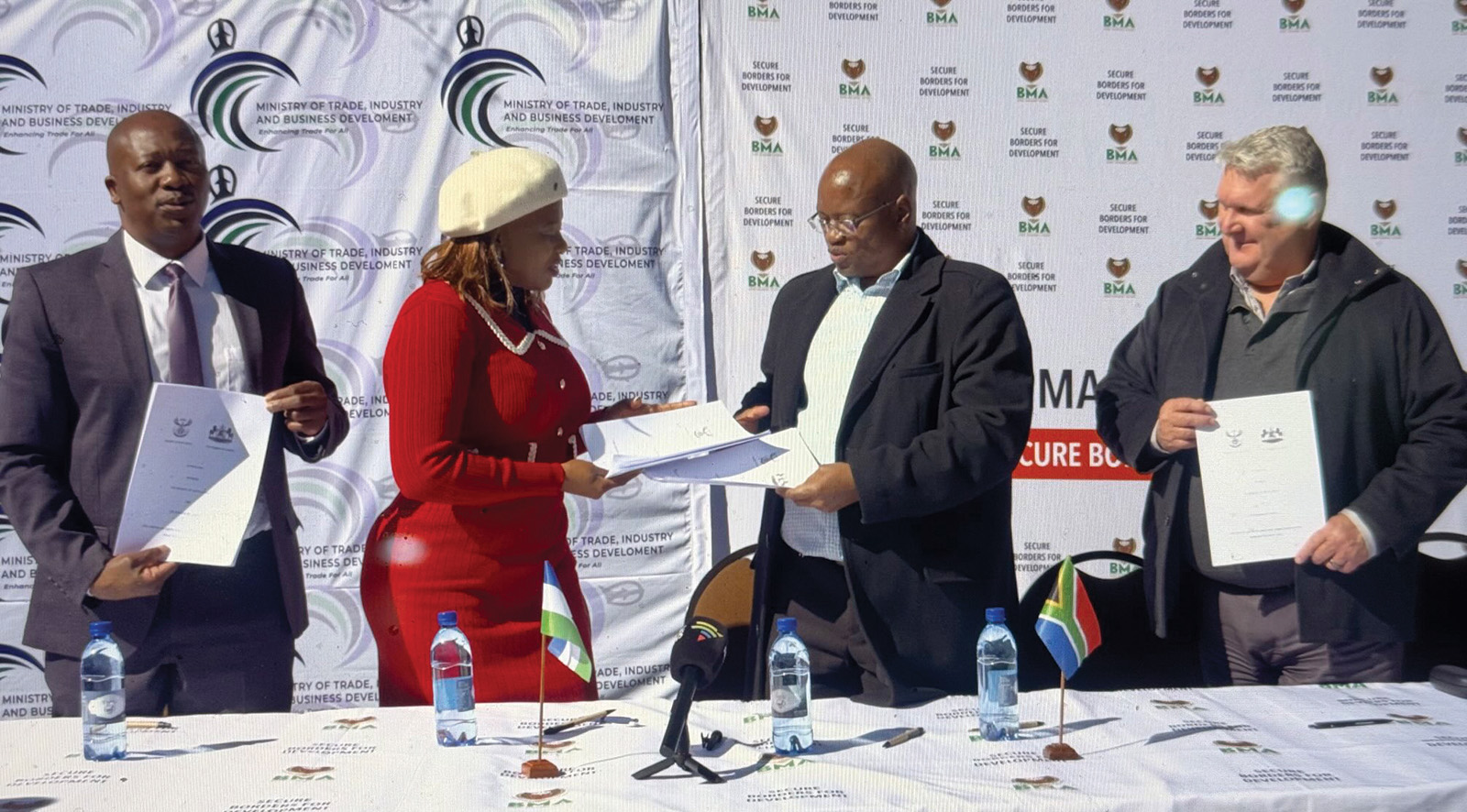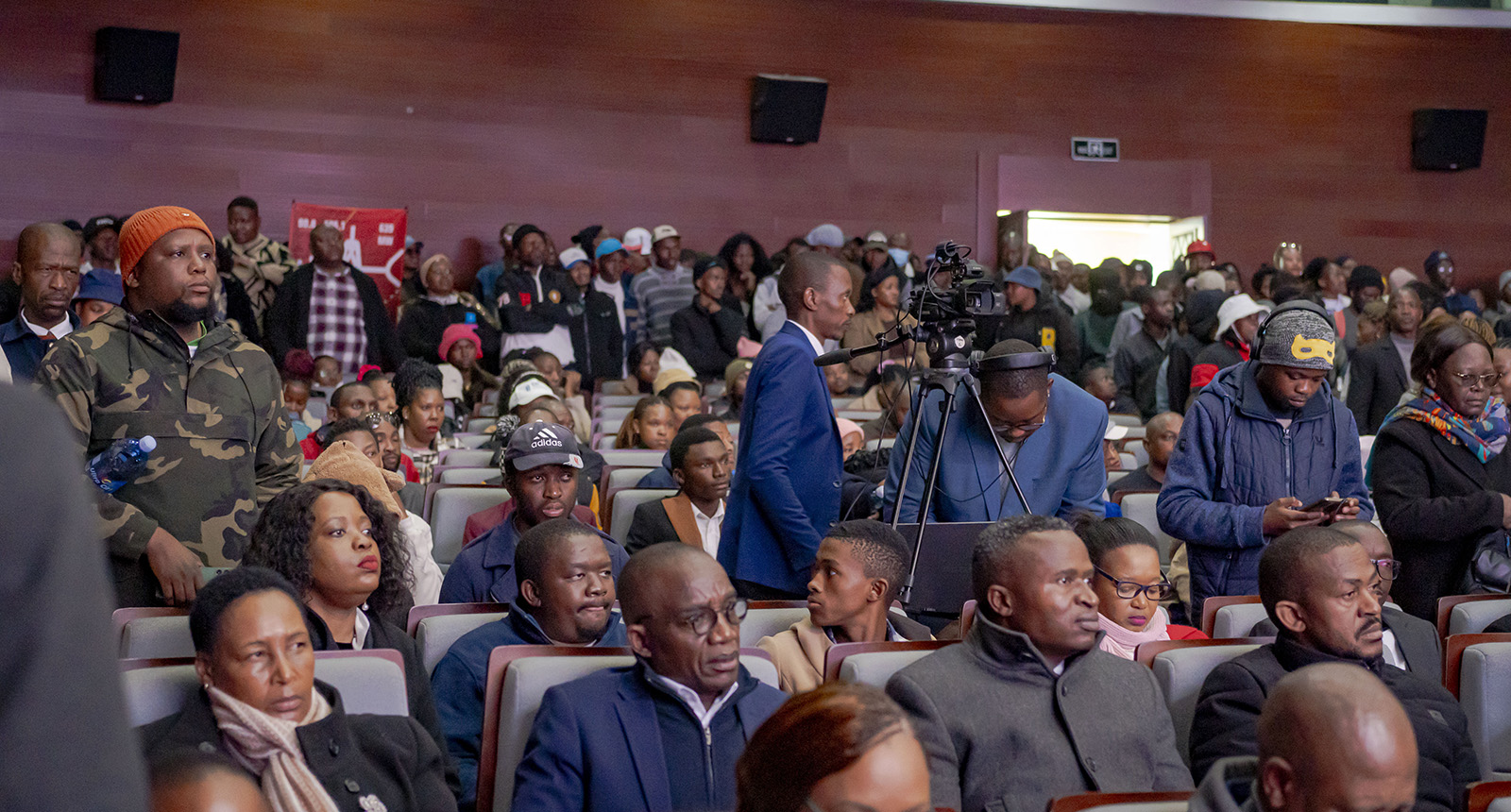Youth demand action on unemployment

SHARE THIS PAGE!
After years of pleas and protests, Basotho youth have finally been heard: Prime Minister Sam Matekane has declared youth unemployment a national disaster.
While this declaration brings hope, young people are demanding urgent and tangible action to follow.
Matekane made the announcement during a youth dialogue held this week, where he stated the decision was made on the advice of cabinet and the Disaster Management Authority (DMA).
This milestone follows sustained pressure from young people who have consistently called for youth unemployment to be declared a state of emergency.
Reatlehile Makateng, President of the Voice of Youth Society in Lesotho, hailed the declaration as a significant victory for youth-led civil society groups who have long championed the cause.
“This is a major step toward addressing the youth unemployment crisis through the Disaster Management Act, after persistent engagement and coalition-building among youth organisations,” Makateng said.
However, he expressed disappointment over what he called a ‘major loss’: the exclusion of ‘original’ youth advocates from key government processes.
“Youth representatives now appointed to panels are largely aligned with ruling parties or employed as civil servants. They were not part of the original movement. This undermines the authenticity of the effort,” Makateng warned.
He said without the establishment of a National Youth Agency led by independent youth voices, the movement risks losing momentum.
“If youth are not genuinely involved in the decision-making process, this declaration may become just another political gesture. The struggle for youth employment must be led by the youth themselves,” he added.
Moselantja Ralejoe, a member of the Coalition of Youth Organisations in Lesotho, said the next critical step is the publication of a government gazette outlining specific actions and timeframes.
“The gazette will guide implementation timelines and ensure that the government is held accountable. We also expect to be part of the engagement process going forward,” Ralejoe said.
On his part, Tumelo Moteuli, acting chairperson of United for Change, echoed the sentiment, saying the government’s commitment is welcome, but action must follow.
“A declaration alone is not enough; it must come with resources and a proper implementation plan,” Moteuli stressed.
He proposed that an emergency command centre be established, staffed by at least 75 percent youth, adding: “Some officials simply do not understand what young people truly need.”
In response, Matekane outlined a series of reforms aimed at dismantling structural barriers faced by young entrepreneurs.
He cited the elimination of licensing fees for Small and Medium Enterprises (SMEs) registering with the Ministry of Trade, Industry and Business Development.
Tender application fees for youth applicants will now range between M0 and M5,000 – a significant reduction from the previous M2,000 to M50,000.
Matekane also scrapped location-based restrictions for youth-owned businesses, allowing greater freedom in selecting operating areas.
Further, he promoted existing initiatives such as the Sebabatso Programme under the Youth Connekt platform, which links Basotho entrepreneurs with international counterparts for mentorship, innovation, and business networking.
To boost market access, the Prime Minister announced the launch of a weekend flea market every Saturday and Sunday in different districts across the country, offering young vendors a consistent space to sell goods and services.
“These reforms are part of a broader effort to unlock the potential of young people and create a more inclusive economy,” he noted.
Despite this progress, many youths remain cautious.
On April 30, 2025, a coalition of youth organisations submitted an official letter to the Prime Minister, urgently requesting that youth unemployment be declared a disaster under Section 20 of the Constitution and Sections 2 and 3 of the Disaster Management Act of 1997.
For months, the coalition received no formal response.
In the letter, the organisations wrote: “This is not just a statistic; this is a national catastrophe. A disaster that has led to mental health crises, drug abuse, HIV/AIDS-related deaths, rising crime, and tragic suicides among young people who see no future in their own country.”
The letter cited Lesotho’s youth unemployment rate of 38.9 percent and emphasized that the law compels the government to act when events cause widespread hardship.
“The Disaster Management Act clearly grants the Prime Minister powers to act in the face of a disaster. And make no mistake, youth unemployment is a disaster,” the coalition stressed.
The message from youth remains clear: no action for youth should happen without the meaningful inclusion of youth themselves.


New border plan to advance regional trade
7 days ago
Foul language lands man in court
7 days ago
Youth demand action on unemployment
7 days ago
Ex-ministers threaten to sue govt
7 days ago
CBL launches LERIMA awareness campaign
7 days ago



Alliance extends deal with premier league teams
10 days ago